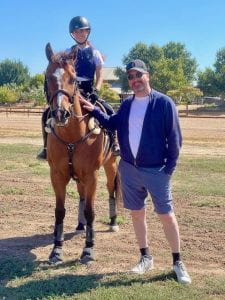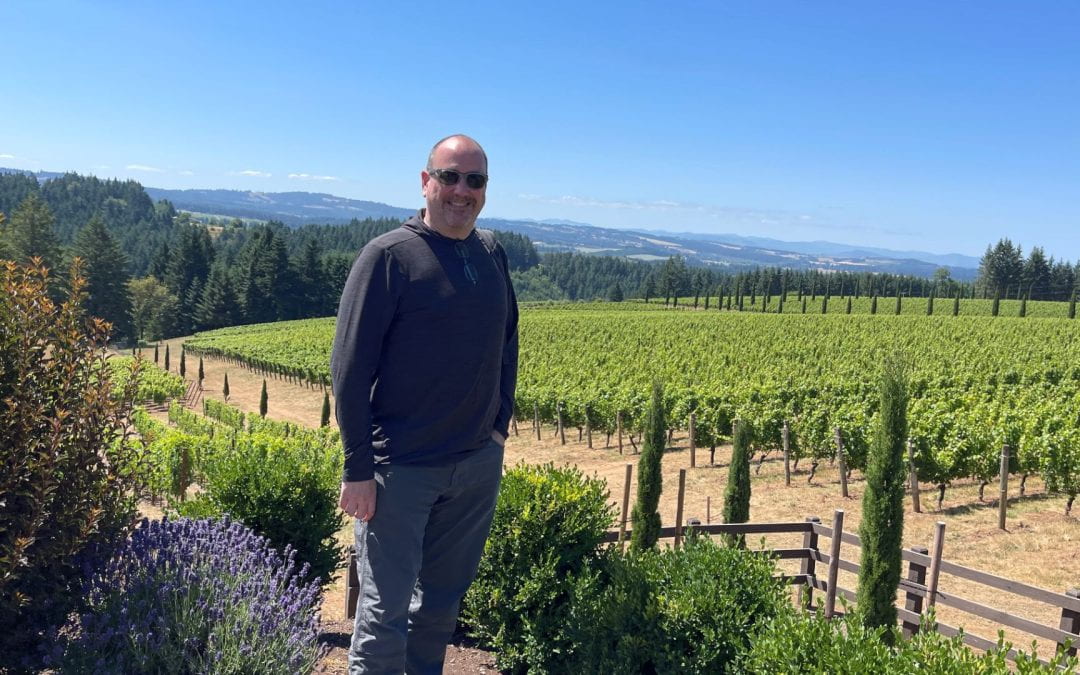A longstanding member of Chemistry of Life Processes Institute’s Executive Advisory Board, Steven Deitcher, MD, Founder, CEO, and Chairman of Bespoke Biotherapeutics, has helped advance the Institute’s mission to conquer disease through protein-informed precision medicine. An accomplished academic and business leader, Deitcher earned his bachelor’s degree in medical sciences (a six-year program offered at the time), and his MD from Northwestern University Medical School. His work spans medicine and private and public company C-suite biomedical product development and commercialization. Among his many contributions to the Institute, Deitcher and his family foundation generously support CLP’s Convergence Workshops which bring together world-class teams of chemists, life scientists and engineers with clinicians in Northwestern’s Feinberg School of Medicine to tackle major clinical challenges with protein-informed approaches.
Where did your love for science begin?
I grew up in Lynnfield, Massachusetts, and always loved science and mathematics. I would describe myself as a very curious and mechanically inclined individual. Curious to the point of getting in trouble with family, teachers, and clergy, because I liked asking the questions “why” and “how”. As a child, I was fascinated by the human body and biology. At a very young age, relatives would buy me books. I think I got my first Grey’s Anatomy book when I was around five and my first Human Body book when I was six years old. I still have these books from my childhood. Interestingly, I can look at the chapters that most fascinated me back then because they’re either dogeared or highlighted as a five or 6-year-old. Those are the exact areas of medicine I ended up focusing my investigative, academic, and industry careers.
I was particularly interested in the chapters on the lymphatic system and the circulatory system, and I thought that white blood cells were the coolest things in the world. Fast forward 50+ years and I enthusiastically spend my days engineering white blood cells to combat cancer and treat hemophilia A.
Why did you choose to attend Northwestern?
When I was looking at colleges and universities, I came across the Honors Program in Medical Education (HPME) at Northwestern. There were several combined or accelerated programs at other schools, but when I started digging, I realized that Northwestern’s six-year medical program was one of two original accelerated programs and oriented toward clinical medicine. There was also a published ranking of honors programs in medical education and Northwestern was ranked number one. So, I applied to it. I remember during my interview being asked if I had applied to all the different six-year medical programs and I said, “No, I picked the one I want to go to. I want to come here.” I think that helped me get in.
The day I interviewed at the medical school; the entire city of Chicago was shut down. The windchills were as low as -70 to -80 degrees and the streets were coated with ice. I remember flying in from Boston with my father and he looked at me and said, “Look at the weather! Are you sure this is where you want to come?”
How was your experience at Northwestern?
I loved it. I enjoyed the academic freedom, the ability to take senior-level courses even as a freshman, and the exposure to fellow students from all over the US who were super bright and ambitious. I loved Evanston and the feeling of Chicago and the medical school. While on the Evanston campus, I would go down to Chicago as frequently as I could. Sometimes when I come to CLP meetings, I’ll stay in Chicago and take the “L” up to Evanston.
While I was in my second year of medical school, my mother passed away. This stimulated me to pursue my own path in medicine. I had things I wanted to do. My interest was using immune cells and manipulating them to fight breast cancer which is what my mother died from. So, I took some time off from school, received some grant money, and secured lab space and mentorship at Rush. This initial exposure to hematopoietic stem cell research evolved into an extracurricular activity that spanned my entire last two years of medical school. I used to go from medical school at Northwestern in the Streeterville neighborhood to spending the whole night in the lab in the Illinois Medical District, running experiments, then coming back to my apartment in River North to change before heading back to school. Everything that I was doing simply captivated and motivated me.
[During this time Deitcher also took night classes at Northwestern’s Kellogg School of Management.]
I have vivid memories by daytime sitting in the lecture hall in medical school and learning about the tests you should run to monitor someone with lupus and at night there’d be a lecture by someone at the business school on when you should stop doing tests in people with lupus because you’ve reached the point of diminishing financial returns. At this point, I knew that I wanted to save lives more than save money.
What did you do after Northwestern?
I applied for and completed my internship and residency at Barnes Hospital at Washington University in St. Louis which was known as one of the most intensive internal medicine residencies in the country. That appealed to me. During residency, I invented my first product, a bedside diagnostic test to rule out gram-negative bacteremia which got approved and published my first original research paper. I actually first met the CLP EAB Chair, Dr. Andy Chan, during my internship. After three years, I left St. Louis and went back to Boston where I did clinical fellowships in hematology and medical oncology (at Tufts University School of Medicine and New England Medical Center Hospitals) and then completed postdoctoral research training in coagulation protein chemistry.
At age 30, I left and took my first full-time faculty position at the University of Tennessee Health Science Center and St. Jude Children’s Research Hospital. My ambition and outspokenness rapidly landed me the additional positions of vice chairman of the Department of Medicine and assistant dean for clinical education. I spent four full years in Memphis before relocating to a dream position at the Cleveland Clinic. I spent the last six-plus years of my academic career as the head of the Section of Hematology and the director of vascular medicine research. These were transformative years.
What made you leap from Medicine to Biotech?
I had the opportunity to leave and join the leadership team of a biotech company in California that had licensed some technology and a novel protein therapeutic from a larger company that I had worked on while I was at the Cleveland Clinic. I remember getting the offer. I was 39 and thriving in a highly desirable position at a great institution. One of my faculty came into my office in December of 2003, shook his head, and said, ‘You’re so lucky. You can just cruise for the next 25 years and do the same thing you’re doing now.” And it felt like lightning hit me. I realized that I didn’t want to cruise, that to make a giant impact and do something significant in medicine, I had to get a new drug approved or discover something that could be applied to a population of patients, not just seeing patients one at a time. It was exciting and new and forced me to think differently and learn a lot. I’m now coming up on my 20th anniversary of joining the biotechnology industry in California. I wake up every day excited to dive into my work and continue to steer clear of boredom.
Why did you join CLP’s Executive Advisory Board?
CLP’s leadership, members, and executive board are very congenial, energetic, accomplished, and intelligent groups of people. As a protein chemist, a physician, an entrepreneur, and a person who’s done a lot in the past and never liked to be viewed as one-dimensional, CLP was very attractive because of its multidisciplinary research approach. I believe in the mission where diversity of thought, perspective, and approach is conducive to better healthcare solutions.
CLP’s strong relationship with Northwestern’s Feinberg School of Medicine is appealing to me because it allows me to be involved in something that makes me feel like I’m part of a ‘One Northwestern’ effort, not just an Evanston campus effort or a Chicago campus effort. I try to be an active part of the valuable and necessary “bridge” between campuses.
CLP takes high-risk, high-reward approaches to life-threatening conditions. You need investigators representing a broad array of disciplines to accelerate the discovery and development of such advances in the diagnosis and treatment of disease. We also need people who are taking a much more scientifically entrepreneurial—a big paradigm shift approach to things. If it doesn’t work, okay. Doesn’t work. If it does work, we’re not making a little incremental improvement, we’re significantly moving the needle. I find that exciting. A lot of the discussion we have at CLP is about how to make a big difference, how to generate solutions, and how to look at the questions a little differently than others may look at them. I am honored to be part of a group that is so passionate about science and focused on change.
What do you think has been the key to your success?

Deitcher, a father of four who lives in the San Francisco Bay area with his wife and youngest children, is pictured here with his equestrian daughter, Natalie, and her horse, Snap.
I always believed in following my own instincts. The work I did between 1986 and 1988 serves as the foundation of what my company [Bespoke Biotherapeutics] does today. There was a big gap in between because technology limitations prevented us from genomically engineering immune cells in the 1980s, 1990s and 2000s. I was involved in the very early attempts to harness cell therapy—basically, bone marrow transplantation—for women with metastatic breast cancer. It didn’t provide much benefit but certainly caused significant toxicity.
The lab team would say, “We need to figure out how to reprogram the immune cells.” Technology was so far from being able to allow us to do that back then, but now we can. And that’s what I’m doing. Bespoke’s lead oncology product candidate is genetically engineered B-cells targeting breast cancer.
Sometimes early research arcs resurface later in your life, and they make you smile. I wake up every morning wanting to succeed at the work that I’m involved in. It keeps me stimulated and interested. I won’t say that money isn’t important, but it isn’t the most important thing. To me, not being bored is the most important thing. I don’t like wasting time and I like to be invigorated.
by Lisa La Vallee
